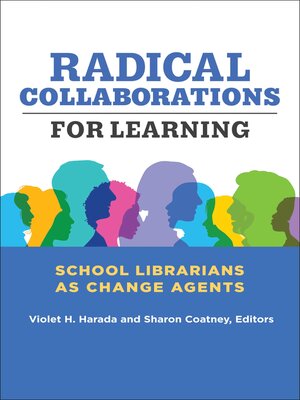
Sign up to save your library
With an OverDrive account, you can save your favorite libraries for at-a-glance information about availability. Find out more about OverDrive accounts.
Find this title in Libby, the library reading app by OverDrive.



Search for a digital library with this title
Title found at these libraries:
| Library Name | Distance |
|---|---|
| Loading... |
Librarians can be effective catalysts and vital connectors who facilitate successful partnerships that enrich students' lives—"radical collaborations" that have deep and far-reaching impact.
Envisioning schools as learning organizations requires collaborating with the greater communities as an integral part of the school's dynamic. How can librarians be key players in realizing this concept of schools?
This book addresses this essential question, as well as how librarians can serve as catalysts in reaching beyond the traditional school to form alliances and partnerships with a range of community organizations and agencies, and how these collaborations result in transformative learning experiences not only for the students but for the adults who work together as well.
The authors provide examples of schools where librarians, library directors, and educators are joining together in these types of unique partnerships. Chapters are authored by library professionals, who describe what stimulates and motivates these partnerships and how they are collaboratively developed and sustained. This publication will be a catalyst that will inspire readers to grow similar alliances in their own schools and districts among public libraries, colleges, arts foundations, nonprofit cultural organizations, and STEM-related agencies.
Envisioning schools as learning organizations requires collaborating with the greater communities as an integral part of the school's dynamic. How can librarians be key players in realizing this concept of schools?
This book addresses this essential question, as well as how librarians can serve as catalysts in reaching beyond the traditional school to form alliances and partnerships with a range of community organizations and agencies, and how these collaborations result in transformative learning experiences not only for the students but for the adults who work together as well.
The authors provide examples of schools where librarians, library directors, and educators are joining together in these types of unique partnerships. Chapters are authored by library professionals, who describe what stimulates and motivates these partnerships and how they are collaboratively developed and sustained. This publication will be a catalyst that will inspire readers to grow similar alliances in their own schools and districts among public libraries, colleges, arts foundations, nonprofit cultural organizations, and STEM-related agencies.







